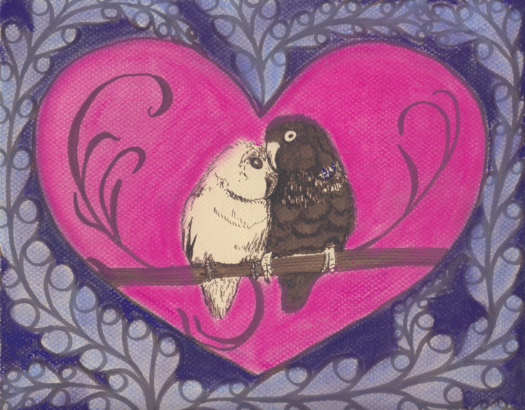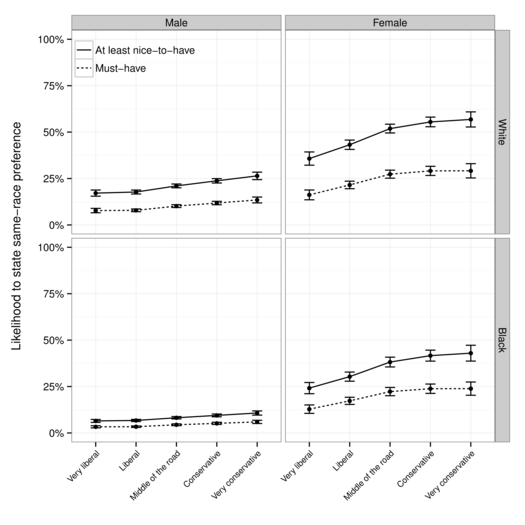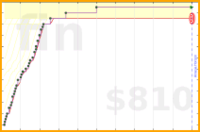Sex, Race, and Politics in Online Dating

With Valentine’s Day two weeks away, there’s still plenty of time to find your soul mate. But daters beware: nearly 50 years after the Supreme Court ruled bans on interracial marriage unconstitutional, race still matters. Among newlyweds, only 9% of whites and 17% of blacks married outside their race. Several recent studies, moreover, have shown that people on online dating sites likewise exhibit strong racial preferences.[1] In a new paper, my colleagues — Ashton Anderson, Greg Huber, Neil Malhotra, and Duncan Watts — and I investigate how these racial preferences relate to political attitudes. In short, are political conservatives more likely than liberals to prefer partners of their own race?
To investigate the relationship between political ideology and racial preferences, we examined member profiles of over 250,000 heterosexual users of a popular online dating site. Each individual in our sample answered a variety of questions about themselves, including specifying their race, political ideology, age, education, income, height, and body type. Key for our analysis, members also declared which attributes they would prefer to see in a potential mate, as well as the strength of that preference on a three-point scale: “no preference”, “nice to have”, or “must have”. For example, if a white user stated that a white mate would be “nice to have”, we logged that as a same-race preference.
“Political conservatives, especially women, are substantially more likely than liberals to solicit a partner of their own race.”
The plot below shows same-race preferences, broken down by sex, race, and political ideology. Strikingly, even among political moderates, the majority (52%) of white women declare at least a weak (“nice to have”) preference to date someone of their own race. By contrast, about one-fifth of moderate white men state a “nice to have” same-race preference. I realize that I live in a bubble — likely exacerbated by the fact that I’m part of the one-third of Asians who married outside my race — but still, I find the number of women willing to explicitly state a same-race preference remarkably high.[2] Turning to the question of racial preferences and political ideology, the plot also shows that conservatives, especially women, are substantially more likely than liberals to state a preference for a partner of their own race. Specifically, conservative white women are about 30% more likely to express a preference for same-race partners than their liberal counterparts (56% vs. 43%). Similar patterns hold for black women and white men, though the effect is not as pronounced. Notably, we find that conservatives are not any more exacting than liberals on non-race attributes. Conservatives, that is, are not simply more selective in general, but rather exhibit a specific interest in race.

“Even those who state they do not have any racial preferences in fact behave as if they do.”
One worry with relying on stated preferences is that they may not accurately reflect one’s true preferences. Liberals, for example, may feel guilty about explicitly declaring they prefer a partner of the same race; and men perhaps simply don’t want to preemptively narrow the pool of candidates. To address this concern, we further examined how people behaved on the site, specifically looking at which member photos users ultimately decided to click on (so that they could read that member’s full profile). Under this behavioral measure, we find that conservatives are still much more likely than liberals to click on photos of members who are the same race as them. However, we also find that men and women of all political persuassions, even when they state not to have a race preference, behave as if they do. In particular, across demographic groups, users who claim not to have racial preferences are in fact two to three times as likely to click on a member’s photo if he or she is the same race as them. Finally — and somewhat surprisingly — even though men and women claim to have very different race preferences, they in fact behave quite similarly, clicking on members of their own race at roughly the same rate.
So it looks like the folks at Avenue Q got it at least half right: Everybody’s a little bit racist, but conservatives are a bit more.[3]
For further details, see our forthcoming paper, Political Ideology and Racial Preferences in Online Dating.
Illustration by Kelly Savage
Footnotes
[1] See, for example, What Makes You Click: Mate Preferences in Online Dating by Hitsch, Hortaçsu, and Ariely. Quartz and OkCupid also examined racial preferences in online dating, as reported by NPR.
[2] For those who don’t know, I am indeed married to the blog’s illustrator, Kelly, who happens to be white.
[3] In case it’s not clear, I’m joking about the “racist” part. People may prefer same-race relationships for reasons as diverse as religious beliefs, social or cultural expectations, a sense of shared identity, or race-related physical attributes. Though explicit racism is likely also a factor — as highlighted by the backlash against Cheerios for airing a commercial featuring an interracial couple — it is by no means the only one.
